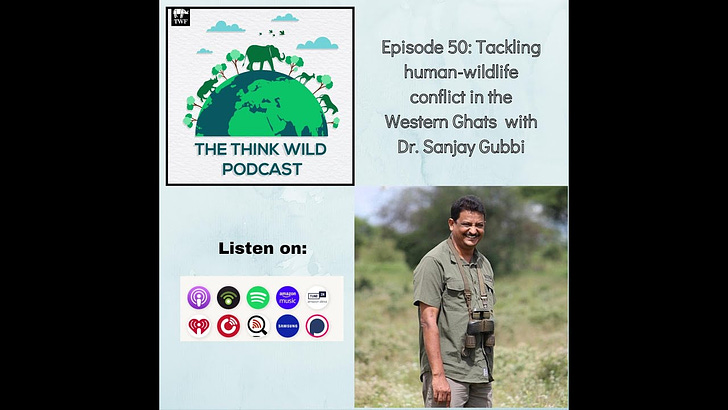The Western Ghats is one of the world’s 36 biodiversity hotspots. Older than the Himalayas, the Western Ghats is home to at least 508 species of birds, 227 reptile species, and 139 mammal species. The region is home to the largest population of Asiatic elephants, with an estimated population of around 11,000 individuals across eight distinct populations. The region is one of the key strongholds for tiger conservation with a population of around 1,200 individuals. Large populations of various other megafauna species are found in the region, including sloth bear, Indian gaur, leopards, Nilgiri Tahr and the Asiatic Wild Dog.
Unfortunately, the region’s biodiversity is under immense pressure. The Western Ghat is undergoing rampant habitat loss and fragmentation due to the development of linear infrastructure, such as roads and railways, mining, hydroelectric dams, and monoculture plantations. Other than isolating populations of megafauna, this fragmentation is catalyzing extensive human-wildlife conflict. Changing land use patterns and loss of habitats often result in conflict over resources, such as food and space. Moreover, as megaherbivores, such as gaur and elephants, seasonally migrate across the Western Ghats, there is a high risk of crop depredation, property damage, and even loss of life. Meanwhile, increased human activity in these habitats is leading to increased livestock depredation and loss of lives by carnivores, such as leopards, sloth bears, and even tigers. These lead to retaliatory killings of carnivores. Moreover, the management of animals touted as “man-eaters” often leads to intense political controversy. As megafauna species are on the path to recovery, mitigating human-wildlife conflict is a priority for conservationists in the region.
In this episode of the Think Wildlife Podcast, I interview Dr. Sanjay Gubbi, who is one of the leading conservation biologists working in the Western Ghats. He has extensively studied and analyzed patterns of human-wildlife conflict in the region, with a particular focus on tigers, leopards, and elephants. Other than human-wildlife conflict, he has worked extensively to minimize the impact of roads, and vehicular traffic on the biodiversity of the Western Ghats. He played a pivotal role in the banning of night-time traffic along the highways passing through Nagarhole and Bandipur National Parks. His extensive research work, coupled with passionate outreach efforts, has led to the addition of nearly 3,000 square kilometers of forested land to Karnataka’s protected area network. The famous and ecologically crucial Malai Mahadeshwara Wildlife Sanctuary was established based on his work. Tune in to listen more about his illustrious career.













Share this post